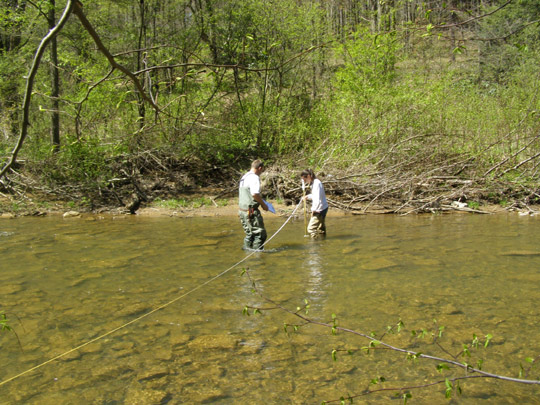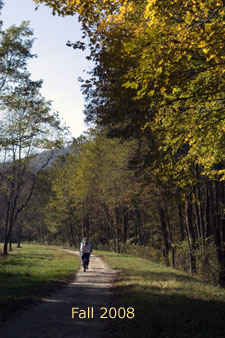CONSERVE | FALL 2008
Supporting a “Water Ethic” in Western Pennsylvania
In her book Last Oasis: Facing
Water Scarcity, Sandra Postel
proposes that for many of us, water
simply flows from a faucet and we
think very little about it beyond this
point of contact. She suggests a
collective need to develop a “water
ethic” that would help us recognize
our obligations to preserve the
complex workings of watersheds
and appreciate the webs of life they
support. WPC’s Freshwater Conservation
Program exists to support
that principle.
In its eighth year, the Freshwater
Conservation Program has worked to
engage and support local communities,
primarily through grassroots
conservation groups, to improve
short- and long-range water conservation
practices. “The ultimate goal is clean drinking
water,” said Nick Pinizzotto, senior
director, Freshwater Conservation. “Demand for clean water rises every
year. The efforts of communities to
protect and clean up their streams is
extremely important for future generations
in Western Pennsylvania.”
Some examples of how the Freshwater
Conservation Program is
working to improve the quality of water
in Western Pennsylvania include:
Treatment of Abandoned Mine
Drainage
According to the Pennsylvania
Department of Environmental Protection,
drainage from thousands of coal mines that are no longer actively
mined has contaminated more than
4,000 miles of streams and associated
groundwaters in Pennsylvania
and is the most extensive pollution
problem affecting Pennsylvania’s
major river basins. Because mine
drainage can contain toxic concentrations
of acidity, metals and sediment,
many of the distinctively orange colored
rivers are nearly “dead” or
severely impaired. Degradation can
leave streams with little or no plant or
animal life, render them undrinkable
and pose a threat to the health of
neighboring communities.
WPC’s Freshwater Conservation
Program works directly with
grassroots watershed organizations
to restore streams that have been
affected by acid mine drainage (AMD).
The program has helped groups
install more than 20 AMD treatment
systems and has assisted with the
assessment of more than 10,000
miles of impacted waterways.
Addressing Agricultural Issues
The Western Pennsylvania Conservancy
is a leader in helping farmers
protect the water resources that make
their farms possible and are used by
others downstream. Getting the word
out about available federal and state
funding opportunities that help
farmers practice sound conservation
agriculture is just one of the tools
WPC’s Freshwater Conservation
program uses to help local farming
communities improve their watersheds.
Another is Nutrient Management
Planning, a process in which WPC
staff members develop customized
plans to help farmers determine the
proper amounts and types of nutrients
to apply to their crops to keep
excess fertilizer from eroding into
streams and ending up in our drinking
water.
For more information on the work
of our Freshwater Conservation
Program, please contact Nick
Pinizzotto, senior director, at
724-459-0953, ext. 100 or e-mail
npinizzotto@paconserve.org.


